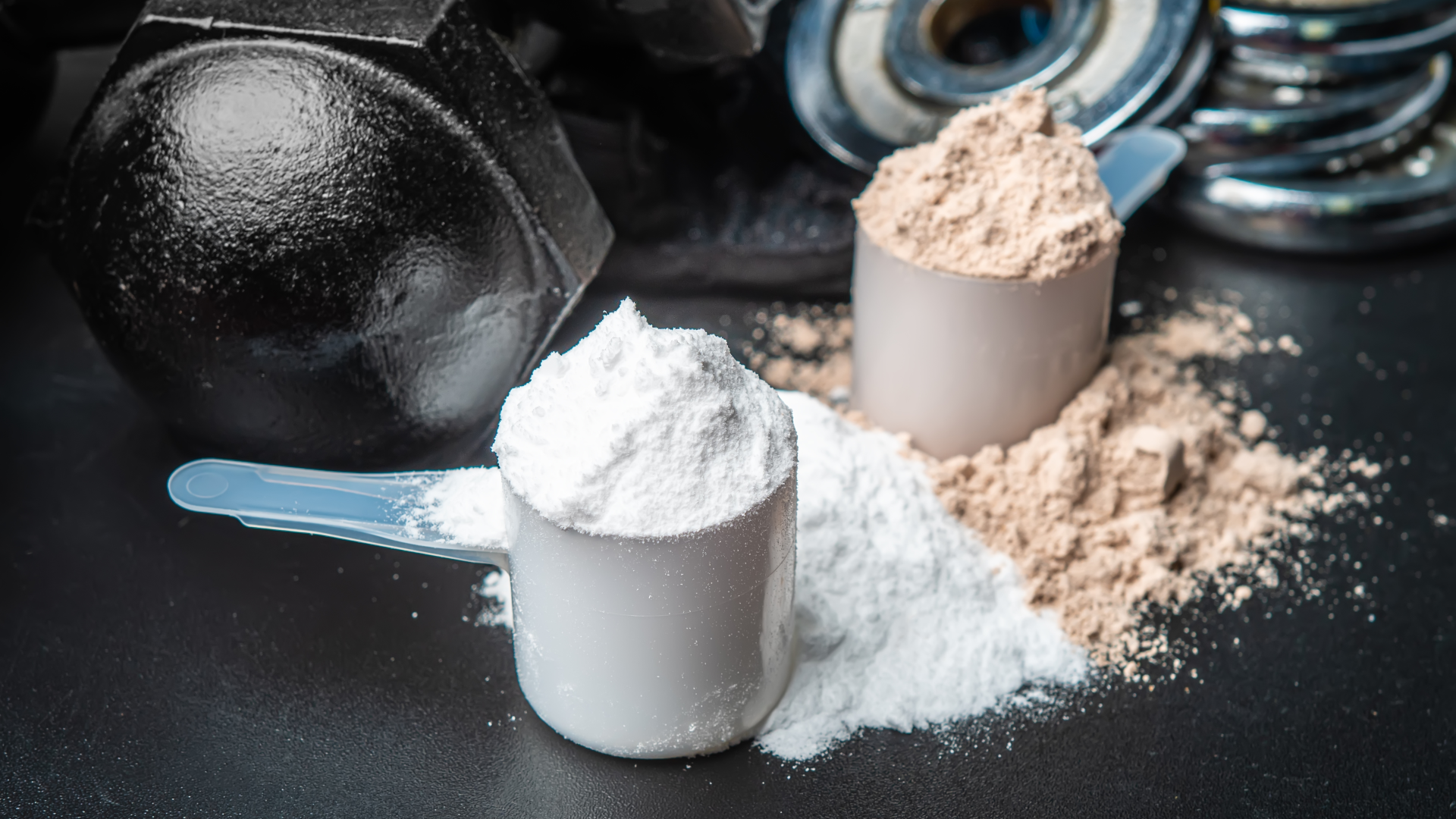Grab your cheatsheet |
Collagen and protein powder are often talked about in the same breath. When looking at supplements, people usually buy one as an alternative to the other, but it’s essential to know the differences if you want to maximize the benefits of both.
You must be sure you are taking them as a supplement for the right reasons.
So, we’re looking at what they are and which you should take in this blog.
So, what is protein powder?
There are multiple types of protein powder, that can help easily increase your protein consumption.
The most common type of protein powder is whey protein - a water-soluble protein, rich in amino acids and easily digestible. It makes up 20% of the protein in cows' milk.
However, plant-based protein is becoming highly popular, usually extracted from plants such as peas, pumpkin, soy, or hemp. Perfect for vegans and those with dairy issues.
Why do we need protein powder?
Protein powder is a must-have product for anyone looking to take their fitness to the next level. It’s popular with anyone looking to increase their physical performance. Amino acids are small parts that make up protein.
Protein is essential and has special functions all over the body, including fluid balance, hormone regulation, and sustaining good health. Supplementing with protein powder can help with all of the following-
Muscle Gain
Protein supplementation is a must if you’re looking to pack on the muscle. Those training several times a week must increase their protein intake to ensure an adequate supply to help repair torn muscles.
Weight Loss
It’s become increasingly clear that protein supplementation can positively impact those looking to lose weight.
Protein leaves you feeling fuller than carbs or fats and is lower in calories. A 2010 study at the University of Ulm showed that subjects who used high-protein meal replacements as part of a low-calorie diet lost more weight and fat mass throughout the year than subjects who did not use the supplements.
Nutrition
If you’re not getting enough protein in your diet, you can use supplements to “top up” your protein levels. It’s recommended that by eating meat, adult women get at least 46 grams of protein daily, and adult men get at least 56 grams.
Vegans and athletes building muscle may need extra protein, which they can find in supplements.
What is collagen?
Collagen is the most abundant structural protein within animals, and it helps make up our frameworks, such as cells and tissues. Twenty-eight types of collagen can be found in our bodies, with type I being the highest percentage.
Collagen is made up of amino acids proline, glycine and hydroxyproline. It can be found in skin, tendons, bones and connective tissue. Collagen provides structural support to tissues and plays important roles in cellular processes, including immunity, cellular communication, and tissue repair. 
As you grow older, collagen production slows, which leads to signs of aging wrinkles, which is why people look for supplementation. People should choose the supplement that best supports their goals when picking a collagen type.
Why do we need collagen supplements?
As we get older, our bodies produce less collagen, so supplementing will have many benefits, such as:
Increased muscle mass. Collagen can help stimulate the production of the proteins responsible for muscle growth.
Improving your joint health. The cartilage of your joints starts to wear away as you age, and supplementing helps to keep your joints strong and reduce pain.
Keeping your bones strong. Because collagen makes up a large amount of bone structure, it will strengthen your bones. The less collagen you have, the weaker your bones will be.
It’s great for your heart. Supplementing collagen can help your cardiovascular system and lessen the stiffness in your arteries.
It’s great for your gut health. Collagen plays a vital role in rebuilding and strengthening the lining of our digestive tract, and this is because it contains the amino acids that are essential for its repair.
It can help with weight control. Type III collagen is found in blood vessels and muscles and helps promote weight loss by increasing metabolism.
Types of collagen and how to use them
There are a couple of different types of collagen that you can take, including;
Type I Collagen
The most common type of collagen found in the body is Type I. It’s responsible for keeping your hair, nails and skin firm.
Type 1 tends to start deteriorating in the body from the mid-twenties, and as a result, we begin to notice wrinkles, saggy skin and thinning hair. Type I is also a significant component of the tendons, organs and bones, so it’s essential to keep it topped up if you want to stay healthy and strong.
Type II Collagen
Type II isn’t as plentiful in the body as type I, but it’s important nonetheless. Type II is essential for the joints. If you’re working out, it’s crucial to ensure your levels are high enough to avoid risking injury.
Type III Collagen
Type III collagen is found in the skin, lungs, intestinal walls, and the walls of blood vessels and is a structural component in hollow organs, e.g., larger blood vessels.
It is a significant structural component in hollow organs such as large blood vessels. It’s usually found alongside Type I collagen in the body.
What are the differences between protein powder and collagen supplements?
The main difference between protein powders and collagen powders is that collagen doesn’t have all essential amino acids, which contrasts with protein powders, which are complete proteins.
Plus they both have different “jobs”.
Amino acids are the building blocks of protein. In comparison, collagen powders contain specific amino acids like glycine and proline, essential for rebuilding and synthesizing collagen internally.
When should I take them?
There are no hard and fast rules regarding taking collagen or protein supplements at a specific time of day. The most important thing is to get them into your system.
Some prefer to take a protein supplement an hour before a workout, but no definitive scientific study confirms that this has an additional benefit.
How should I take them?
Protein powder can be mixed with water or milk and taken as a shake once or twice daily, depending on the protein intake required. Collagen can be mixed with water or even fruit juice.
Collagen vs protein powder: which one is right for you?
Protein powders are great for those following a vegan diet or who are primarily interested in gaining muscle. Taking supplements and following your regular diet also adds calories, so you must manage your intake carefully to ensure that it's just muscle you’re acquiring as weight.
A collagen supplement will be the right choice if it’s more than muscle you’re after, and you’re looking for a supplement with more full-body benefits.
If you are looking for a protein powder supplement then have a look at our Crazy Nutrition TRI-Protein. 



